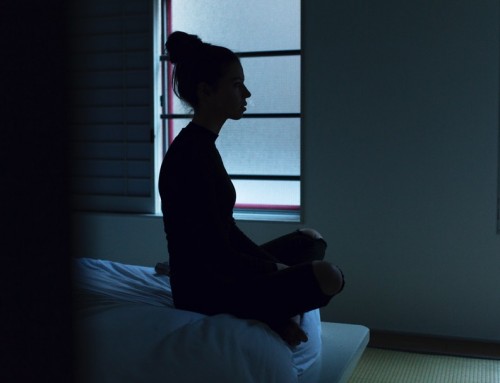If you think you may be pregnant, tests are usually not accurate until around 6 days after conception.
These tests look for the hormone – human chorionic gonadotropin (hCG). If you are pregnant these levels will rise quickly – even doubling in a few days.
Sometimes it’s hard to wait that long to know. As women we need to be more in tune with our bodies, so we know when changes are happening.
Whether you’re planning for it or not, you need to know these first subtle signs of pregnancy. Read on to find out what they are.
1. Implant Spotting
One of the earliest signs of pregnancy is light spotting from implantation. This happens around the same time as your period.
When the egg attaches to the uterine lining, this causes light spotting. Not everyone experiences this type of spotting. It is light and doesn’t last long.
You may just notice some brown or pink spots in your underwear. Menstrual bleeding is redder and heavier.
Implantation bleeding is always the same color and doesn’t get darker near the end like your period.
2. Cramping
After the egg attaches to the uterus, you may feel some cramping, caused by contractions. The cramps are light and not severe.
These cramps happen before you would get your period.
3. Fatigue
Not too long after conception, you may feel extreme fatigue caused by the hormone level changes.
The feeling of fatigue can set in as soon as one week after conception. This means you may start to drag a week or more before your anticipated period arrival.
4. Breast Changes
Hormones are changing rapidly and can affect your breasts. You may feel sore or tender before you miss a period. They may even feel swollen.
The area around your nipple, the areola, may also begin to darken in early pregnancy.
5. Nausea
Feeling sick to your stomach starts around the fourth or into the sixth week. It can occur at any time of the day even though it is commonly referred to as morning sickness.
The hormones may make you feel nauseous, but once they level out after the first trimester, most people feel less morning sickness.
6. Backaches
You can also begin to feel backaches in your lower back in early pregnancy. You may want to do some back stretches to help alleviate the pain and strengthen your back for the pregnancy.
7. Discharge
Another common symptom of pregnancy is increased discharge. This discharge is normally more a milky white and comes before your period.
You get this increased discharge because your vaginal walls start to grow thicker right after conception. This discharge will continue throughout the pregnancy.
Make sure there is no odor, burning, or itching because this could be a yeast infection.
8. Frequent Urination
You know that pregnant women have to pee more than normal – but this could start as early as right after conception.
Pregnant women have to pee more because the blood volume increases. This makes kidneys create excess fluid in the bladder.
9. Higher Basal Body Temperature (BBT)
Your basal body temperature (BBT) is your body’s rest temperature – often the lowest temperature of the day. If this temperature increases, you could be pregnant.
To know your BBT, you need to take your temperature throughout the monthly cycle. Your BBT will go down before you ovulate and will stay lower for 24 hours.
If you are pregnant, this temperature will begin to rise gradually. You need a basal thermometer to get an accurate reading.
10. Food Cravings or Aversions
You may find yourself turning up your nose at certain foods or craving something odd. These aversions and cravings can happen very early in your pregnancy.
Every pregnancy can be different. The hormonal changes are to blame for these changes. These cravings and aversions are typically strongest in the first trimester.
11. Headaches
Headaches are caused by the changes in your hormones and can happen before you miss your period.
You need to eat enough vitamins and nutrients to help alleviate headaches. Try a hot and cold compress to relieve pain naturally.
Talk to your doctor before using essential oils.
12. Mood Swings
You may notice mood swings before you even miss your period. This is because your hormones are fluctuating and messing with your mood and feelings.
Try a balanced diet to help lessen the emotional roller coaster.
13. Dizziness
Just like everything else, your hormones can really make you feel different. You may even begin to feel lightheaded or dizzy the first week after conception.
This happens because the blood circulation is restricting the amount of oxygen going to your brain. You can feel dizzy throughout your pregnancy.
14. Bloating
You may begin to feel bloated right around the time of your period. This feeling can resemble the same bloating you feel during your period.
15. Shortness of Breath
Your body needs more oxygen to support a growing fetus so you may feel short of breath. Your body is processing oxygen differently and quicker.
16. Missed Period
The most telltale sign of pregnancy is a missed period. If you miss a period, you should take a pregnancy test.
You can also miss a period if you have gained or lost a large amount of weight or if you have other hormonal issues.
When to See a Doctor with Subtle Signs of Pregnancy
Light spotting, breast changes, and cramping are early signs of pregnancy. As you can see, a lot of these symptoms are similar to premenstrual signs. You know your body best, so you may notice these subtle changes.
You should visit your healthcare provider as soon as you think you are pregnant. You can begin your prenatal care if your test is positive.
You and your doctor can discuss the best plan for your pregnancy.
If you are not expecting this pregnancy, you can view here for more options.
Have a Healthy Lifestyle
Whether you are pregnant or not, you can learn more about maintaining a healthy lifestyle with articles like Benefits of Drinking Water.
You may also want to touch up on your style tips or learn to deal with stress because subtle signs of pregnancy can be stressful.











